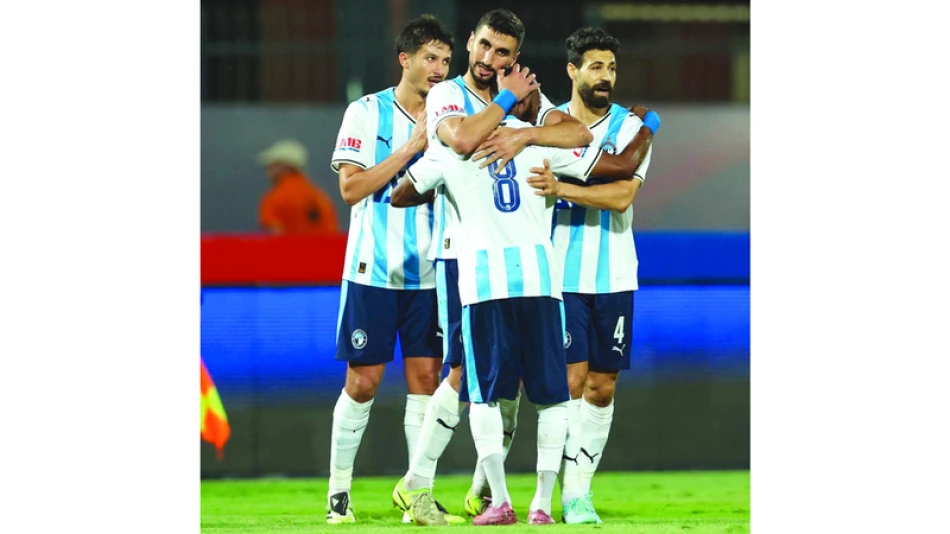
Pyramids FC Hosts Auckland City FC in Intercontinental Cup Bid for New Dreams
Pyramids FC Faces Injury Crisis as Egypt's Champions Enter FIFA's Revamped Continental Tournament
Egyptian champions Pyramids FC will kick off their FIFA Intercontinental Cup campaign against New Zealand's Auckland City on Sunday at Cairo's Air Defense Stadium, but defensive injuries threaten to derail Africa's representative in FIFA's restructured global club competition. The match marks the first round of the 2025 tournament, which replaced the old Club World Cup format as FIFA reshapes international club football.
FIFA's Strategic Tournament Overhaul
The Intercontinental Cup represents FIFA's bold attempt to create annual global club competition while reserving the expanded Club World Cup for every four years. This structural change mirrors FIFA's broader strategy to maximize revenue streams and maintain year-round engagement with top clubs worldwide.
The tournament format creates a clear pathway: Sunday's winner will face Saudi Arabia's Al-Hilal, the Asian champions, in Jeddah on September 23rd for the Africa-Asia-Pacific title. This regional championship structure echoes UEFA's successful Nations League model, creating meaningful competitions between continental winners.
Pyramids' Historic Achievement Under Pressure
Pyramids enters this tournament as Egypt's first-time African champions, having defeated South Africa's Mamelodi Sundowns 3-2 on aggregate in the 2024-25 CAF Champions League final. This breakthrough represents a seismic shift in African football, breaking the traditional dominance of North African powerhouses Al Ahly and Zamalek.
However, their debut on the global stage comes amid a defensive crisis that could undermine their continental success. Center-back Mahmoud Marei is confirmed out with injury, while fellow defender Ahmed Sami suffered an injury during Egypt's friendly against Tunisia.
Squad Depth Concerns
Coach Juričić faces additional uncertainty over key players Mostafa Fathi and Ramadan Sobhi, both absent from recent matches due to fitness issues. Midfielder Mohanad Lasheen also requires medical clearance after picking up an injury during Egypt's match against Ethiopia.
These personnel problems highlight a common challenge for emerging football nations: while Pyramids could assemble a competitive first eleven to conquer Africa, their squad depth remains insufficient for sustained campaigns across multiple competitions.
Market and Strategic Implications
Pyramids' continental success reflects significant investment in Egyptian football infrastructure and talent acquisition. Their rise parallels similar projects across the Middle East, where private investment and government backing have elevated clubs like Al-Hilal and Al-Nassr to global prominence.
For FIFA, tournaments like the Intercontinental Cup serve dual purposes: maintaining competitive balance between regions while generating revenue from markets eager to showcase their football development. Egypt's participation brings a television audience of over 100 million potential viewers, making it commercially attractive despite the country's economic challenges.
Auckland City: The Persistent Underdogs
Auckland City arrives as Oceania's perennial representatives, having dominated their regional competition for over a decade. While they enter as clear underdogs, their experience in FIFA tournaments gives them tactical awareness that could exploit Pyramids' defensive vulnerabilities.
The New Zealand champions typically employ a disciplined, counter-attacking approach designed to frustrate more technically gifted opponents. With Pyramids potentially fielding makeshift defensive arrangements, Auckland City's direct style could prove more threatening than their regional status suggests.
Broader Context for African Football
This match represents more than a first-round fixture; it's a test of African football's evolution beyond its traditional powers. Pyramids' success could encourage similar investment across the continent, while failure might reinforce perceptions about squad depth and preparation standards in emerging African markets.
The timing coincides with increased Saudi and UAE investment in African football, creating new pathways for player development and club partnerships. Pyramids' performance will likely influence future investment decisions and FIFA's approach to continental representation in global tournaments.
Most Viewed News

 Sara Khaled
Sara Khaled






